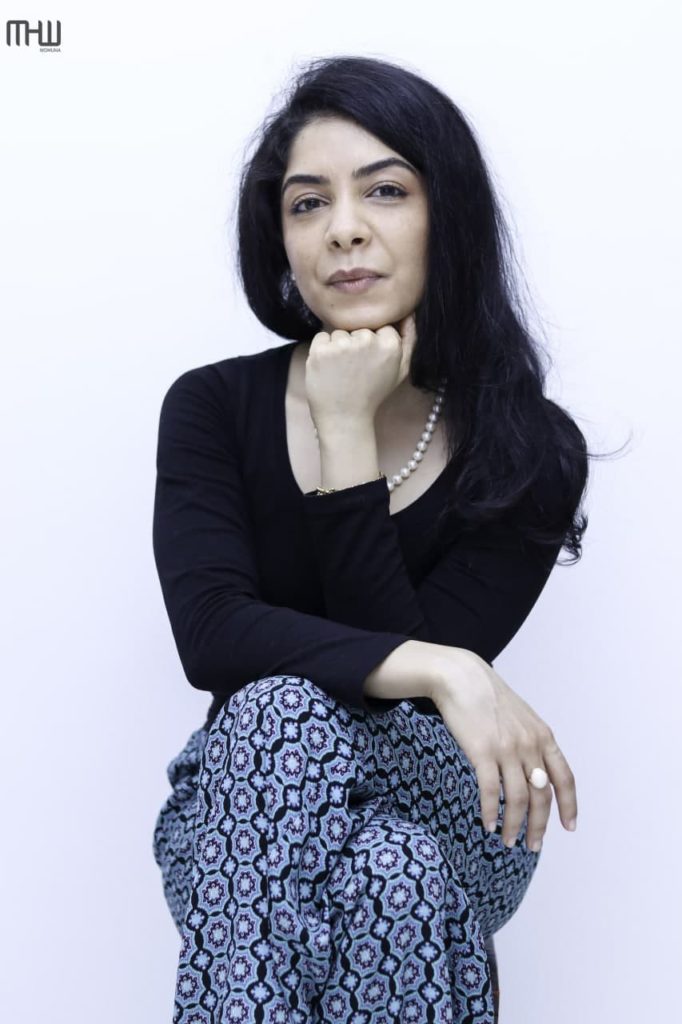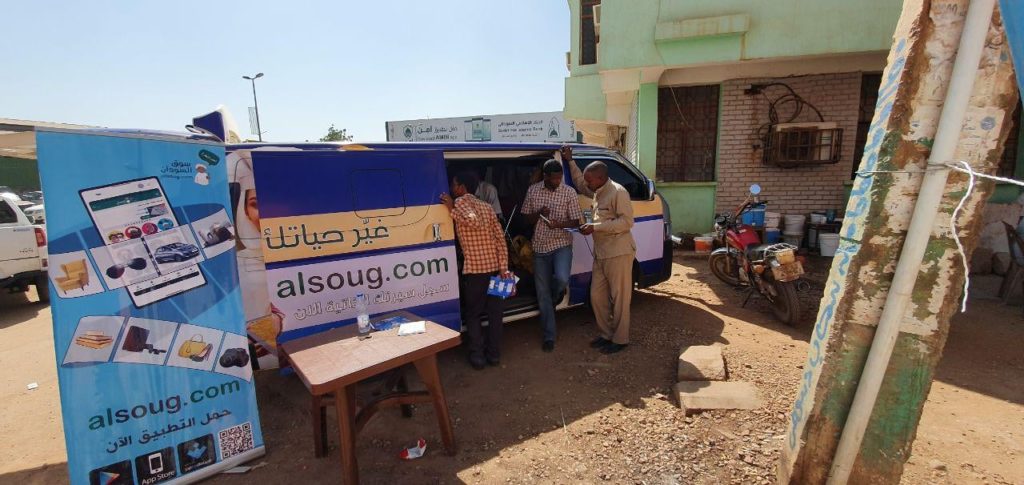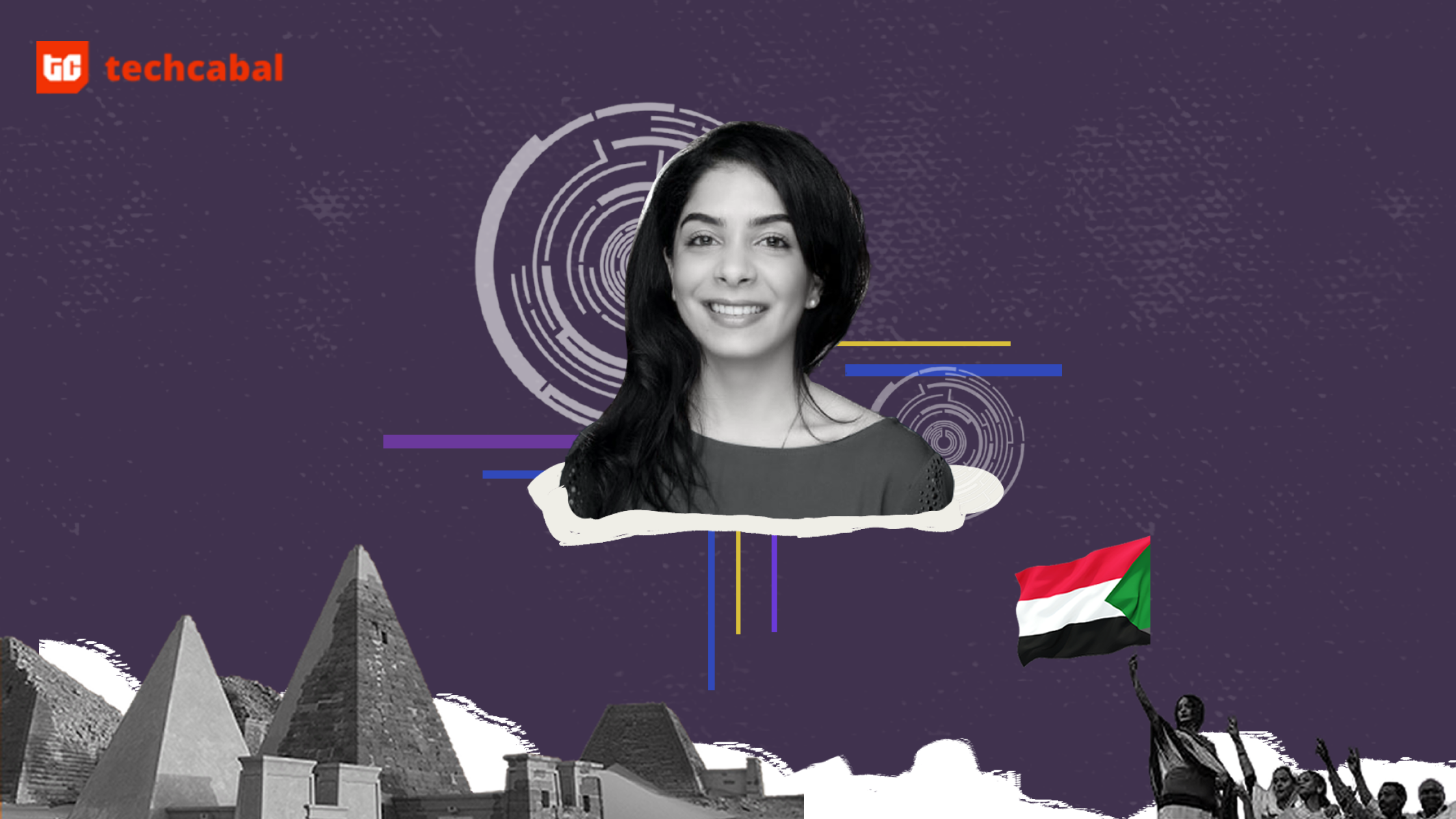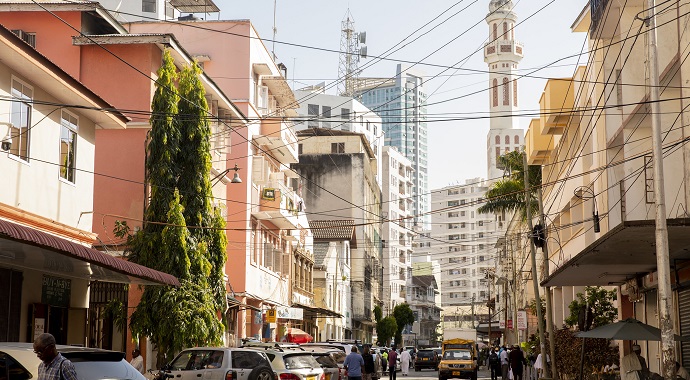She left law in the UK, returned to Sudan, and built the largest online marketplace in the country. Now, she’s building the biggest fintech startup in the country. How’s Saeed doing all of this in Sudan, one of Africa’s most conflict-torn political landscapes?
In the media, Sudan is often portrayed as an unstable country. In October last year, it made the news again; this time, not for the civil unrest that has engulfed the Northeast-African nation for the past 40 years but for alsoug, a marketplace startup in the country, which closed a $5 million institutional funding round.
This investment is the first of its kind since international sanctions on the country were lifted in 2020, following a 30-year isolation period. So, it isn’t only a big deal for the startup but for the entire ecosystem. It is a milestone that marks the beginning of a new era for business in Sudan.
alsoug, founded in 2016 by Tarneem Saeed, is reportedly the biggest tech startup in the country; the funding round speaks to this fact. What is surprising, however, is that, in a conservative and conflict-torn nation like Sudan, a woman-led company is at the forefront of bringing Sudan’s economy back to health.
Tarneem Saeed and founding alsoug
Saeed left Sudan for the first time when she was 14. Her father was a successful Sudanese businessman and her mother a top professional in the humanitarian space. At the time, the Sudanese educational system had gone to shambles, so Saeed’s parents shipped Saeed and her brother to Canada to continue their education. From Canada, Saeed proceeded to the London School of Economics and Political Science (LSE) where she studied law and served as the president of the Arabic Society.
She worked as a corporate lawyer at Allen and Overy, a global law firm present in over 60 countries, for 4 years. In 2014, she took a sabbatical to visit Sudan to help a family friend put together a collection of coffee table books focused on Sudanese’s artists.
Upon getting to Sudan and staying a few days, she began to see how disconnected the country was from the digital economy.
“Sudan felt so cut off from the world. It was like in the 1990s; people and businesses weren’t harnessing the full power of the internet. Coming from London, Sudan just felt really empty,” Saeed said. “One thing that irked me the most was how difficult it was to find out the price of anything. You had to ask someone to get the price of a car, house, and even cattle.”
This didn’t sit well with Saeed. Sudan has a staggering 64% of its population under the age of 24 and boasts a mobile penetration rate of 73%—so, why was it still living in the 1990s?
Saeed decided to do something about it. Throughout 2015, she and her small team were building a broker platform where people could check the prices of goods and services. In 2016, alsoug was launched as a classified marketplace.
“We chose the classifieds model because Sudan was quite unstable and the internet wasn’t great,” said Saeed. “The beauty of the online classifieds platform, however, is that it doesn’t require heavy tech, and you can do a lot on it while keeping costs fairly low.”

In 2016–2017, the telecommunication companies present in Sudan were in survival mode. They were cutting operation costs and not reinvesting in the country. As a result, the country’s tech got old and any mass digital product had to be light so that people could access it with their 2G and not-so-strong 3G.
alsoug continued as a classified platform where people would go to check out the price of things—as Saeed had envisioned it—and connect with sellers. Saeed and her team took to the streets to onboard offline merchants, educating them about alsoug’s value. The team also doubled down on SEO since they couldn’t advertise on social media because Facebook won’t allow them to target Sudan. After a while, the platform started picking up momentum.
After the success of the classifieds model, Saeed’s thesis that Sudanese aren’t suspicious of tech and would embrace it, if provided, was now proven, and it was time for alsoug to pivot into a scalable business model—where the platform facilitates more than just discovery but also payments and fulfillment.
A big problem is a big opportunity
alsoug has pivoted into a marketplace that facilitates an entire e-commerce value chain, but there’s a problem: there aren’t any existing digital payment options to plug into. “There was no M-Pesa or Paystack,” Saeed said, so the company couldn’t process payments online and had to settle for cash on delivery.
After using this model for a while, the company realised that they’d have to build their own payment gateway. After all, this wouldn’t be the first time they’d build supporting tech from scratch: Saeed said they’d earlier built their own SMS tool after a series of terrible experiences with some third parties.
“So, we started looking into building our payment gateway, obtaining licenses, and talking to potential partners. Then we met Ashraf Sabry Fawry CEO and some other key shareholders, who convinced us that if we were going into the payment space, we’d have to spend more money,” said Saeed.
“We realised we could build a payment network across Sudan. We decided to raise capital, but we were keen on bringing in adventurous VCs with high ethical standards who’d understand that doing business in Sudan is a long-term play. It took a while to close, but it’s worth the time.”
alsoug now has a payment gateway called Cashi that facilitates payments on its marketplace; and the company is also on the brink of rolling out its POS machines across the nation. What started as a buyer-seller matchmaking site has morphed into a full-blown e-commerce and fintech powerhouse.
The alsoug roadmap is very ambitious. However, building as a woman in Sudan is a tough call. This is not only true for Sudanese women, it’s the reality of every female founder across the world.
“There are places I can’t go to and have to rely on male employees to go there. For example, I can’t go to the car market because it’s a male-dominated market and women aren’t taken seriously there.”

Saeed also narrated how in most meetings with regulators or government officials, they directed their questions to her male employees rather than her. She, however, isn’t deterred by this because instead of taking it as an insult, she’s turned it into fuel driving her ambition. She said one way to look at it and not feel disrespected is to consider that Sudan is majorly an Islamic environment where it’s believed that men should lower their gaze.
According to Saeed, the company has managed to capture the biggest market share because of their operational strategy. Though there are some Arab marketplaces competing with them, they are not bothered. Over the years, a number of companies have come, launched, and then shut down within a short period of time. Before anyone knew what was happening Sudan had eaten them up whole and spit them out of its borders.
The Sudan market is tough, and what helped alsoug was building light as they grew; they didn’t try to overweigh the market all at once. Now the market trusts them to deliver even on other fronts—like fintech.
“No one has managed to penetrate the offline market and sustain growth the way we have. We have gone from people throwing us out of their shops to them coming to us,” Saeed said with a faint giggle. “At the beginning, a lot of people didn’t understand. For example, real estate brokers thought we’d come to steal their jobs, but when we encouraged them to get on the platform, they realised an increase in their sales exponentially in the course of a year.”
alsoug has used its empathetic offline education to turn competitors into customers and partners not only in the marketplace section, but also in the fintech division. According to Saeed, the company is not trying to compete with the banks, telecoms, and the budding fintech ecosystem; it just wants to fix the black holes by playing in a space where none of them is playing. “Digital cash in and cash out,” she said.
Sudan in retrospect
To really understand how much of a hard ground Sudan was and still is to do business in, a little context is necessary.
Sudan is the third-largest country in Africa: it has a landmass the size of Nigeria, Kenya, Ghana, Liberia, and Rwanda put together. But unlike other nations who have since moved on from their civil war days, Sudan is still stuck on hers.
Since 1956 when Sudan first gained independence from the UK, there’ve been only 11 years of peace. The initial attempts to build a parliamentary democracy in Sudan was met by coups in 1958 and 1969. However, in 1972, the Addis Ababa Agreement enforced a peace agreement between the government and separatist southern rebels.
In 1983, another civil war broke out when the military regime tried to impose Sharia law as part of its overall policy to “Islamicise” all of Sudan. The policy was pushed back by a rebel force called Sudan People’s Liberation Army from the south.
This event marked the end of the 11 years of nationwide peace but didn’t mark the beginning of the conflict-laden nation that we know today. What turned Sudan to a bonafide hotspot, therefore, was the 1989 coup led by Omar al-Bashir, a politically and religiously extreme military leader.
The then ruling government and the southern opposition were reaching a compromise, but al-Bashir overthrew the government and declared himself chief of staff, prime minister, and chief of the armed forces—positions he occupied for 30 years until 2019 when he was forced to resign.
The al-Bashir administration, in 1990–91, supported Saddam Hussein in the Gulf War. This made Bill Clinton to blacklist and isolate the country, and christen it a rogue state. Clinton also prohibited US investment in the country and reportedly sponsored neighbouring countries to repel Sudanese incursions.
A little over 2 years since al-Bashir vacated the seat, the country is still in a mess. Abdalla Hamdok, the civilian prime minister installed to take the country back to democracy, resigned last week. The resignation that came amid further political deadlock and widespread pro-democracy protests has derailed the country’s fragile transition into democratic rule.
For 50 years, the political landscape in Sudan has been everything but stable and peaceful.
This seems like a lot but no Sudanese story will be complete without the mention of years of horrific governments that performed a tribal cleansing on its people, starved and killed children, raped women, and rendered its citizens homeless in their country.
Saeed returned to Sudan in 2014, the same year the international criminal court suspended its case with al-Bashir—after two unsuccessful arrest warrants—because of lack of support from the United Nations Security Council.
So, when Saeed says that “if anybody built a thriving business in the midst of this persistent chaos that is Sudan, it is the alsoug team,” she is right because it has been done and all the facts are there.
The vision that drives alsoug is bigger than any bottleneck. Apparently, the same passion that drives the CEO is what drives her employees—building a company that makes life easy for every Sudanese and ushers the country into a prosperous era.
alsoug has positioned itself as the answer to Sudanese intra-country commerce. It has provided a platform to sell and buy; an infrastructure that powers payment; and a logistics arm that fulfils last-mile delivery—the three arms of commerce.
Saeed is giving entrepreneurs in the country’s nascent tech ecosystem and some government officials a fresh set of beliefs in building reputable businesses in the country. However, this is just the beginning because Saeed doesn’t want alsoug to just be a champion in Sudan but also become a household name in Africa, like M-Pesa in Kenya, Flutterwave in Nigeria, Wave in Senegal, and even their major backer, Fawry in Egypt.





















